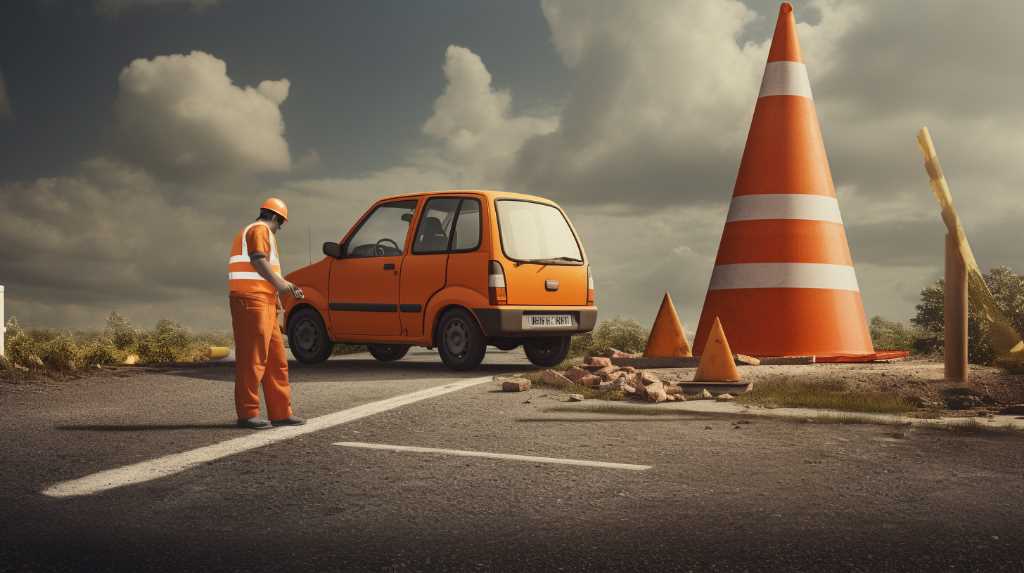
In the realm of commercial transportation, minor truck accidents present a conundrum for drivers and fleet operators alike. The question of whether these incidents necessitate reporting hinges on a myriad of factors, including jurisdictional laws, the extent of damage, and the potential implications for insurance and liability.
It is imperative for those involved to possess a comprehensive understanding of the legal requirements in their respective areas, as non-compliance can lead to serious legal repercussions. Furthermore, accurately assessing the situation is crucial to determine the safety risks to all parties involved.
This introduction aims to elucidate the nuances surrounding the reporting of minor truck accidents, providing clarity on the steps that should be taken post-incident to ensure proper protocol is followed, thereby safeguarding all stakeholders from unnecessary complications.
Understanding Reporting Laws
In most places, the law says that if there’s a truck accident, no matter how small, you have to tell the police or other authorities. This rule is there to keep everyone safe and to make sure we have accurate records of what happens on the roads.
When you report an accident, it’s not just a simple task. It starts a whole process where the police check what happened, insurance companies get involved, and if needed, emergency services come to help. If you don’t report an accident, you could get into serious legal trouble.
The steps for reporting an accident help figure out what really happened, decide who is at fault, and make things clear for anyone who needs to make a claim. So, it’s really important to report accidents correctly to make sure our roads stay safe.
Assessing Damage and Safety
After a truck accident, it’s important to carefully check how much damage has been done and to make sure everyone is safe. You should take detailed notes about the damage to the vehicles, such as where it happened and how bad it is. This is important for dealing with insurance and any legal issues.
It’s just as important to see if anyone involved—drivers, passengers, or people nearby—has been hurt. Even small injuries should be checked by a doctor immediately.
You also have to think about how the accident has affected other drivers and road safety to avoid more accidents.
Insurance Implications
Even small truck accidents can lead to big changes in your insurance, like higher costs and trouble getting future coverage. Insurance companies look at your past accidents to figure out how much of a risk you are. Even if the accident wasn’t a big deal, it could make your insurance go up because the company sees you as more likely to have another accident.
If you don’t tell your insurance about an accident, you might break the rules of your policy and they might not cover you for anything that happens later. It’s really important to write down everything about the accident and report it quickly so your insurance stays valid.
As a truck driver or company owner, you need to know exactly what your insurance policy says because if you don’t report accidents, it could affect your ability to get insured in the future.
Legal Consequences
If you don’t report a minor truck accident, you could get into legal trouble. This could mean paying fines or even having your license taken away, and it varies by where you are.
Laws usually say you must report accidents if someone is hurt, there’s a lot of damage, or the damage costs more than a set amount of money. If you wait too long to report, it might be seen as breaking the law, and you could get a ticket or face more serious legal issues.
It’s important to remember that these laws are there to keep everyone safe and make sure we know exactly what happened. If you don’t follow the rules, you’re not just causing trouble for yourself; you’re also making the roads less safe for everyone.
Plus, a small mistake can turn into a big problem that affects you for a long time.
Steps After a Minor Accident
After a small truck accident, make sure everyone is safe first. Turn on your truck’s hazard lights and set out cones or flares so other drivers see the accident and don’t crash into you. Check for any damage or if anyone is hurt.
If the vehicles can still be driven and no one is badly injured, move them to the side of the road to keep traffic moving smoothly. Share your name, insurance, and vehicle details with the other driver. Take pictures of where the vehicles ended up and any damage to show what happened.
Conclusion
It’s really important to report even small truck accidents. This keeps you on the right side of the law and helps avoid trouble later on.
Here’s what you need to do: check the damage and make sure everyone is safe, know what your insurance needs from you, and be aware of any legal issues that could pop up.
Act fast when something happens – get all the details down and talk to the people who need to know. This way, if someone makes a claim or there’s an argument later, you’re in a strong position.
So, remember, handle a minor truck accident carefully and you’ll be better off.